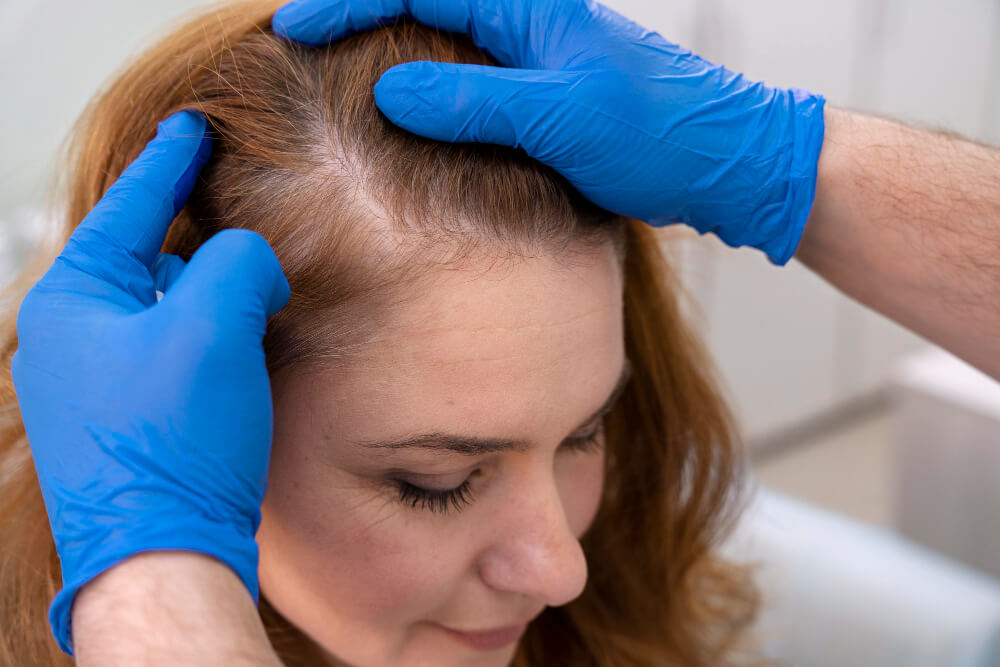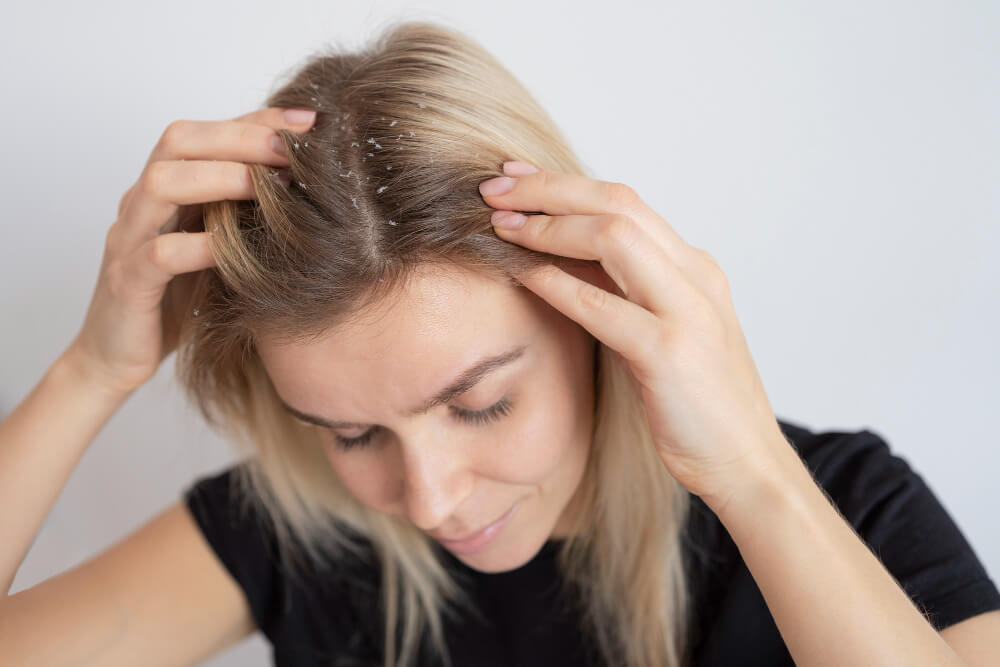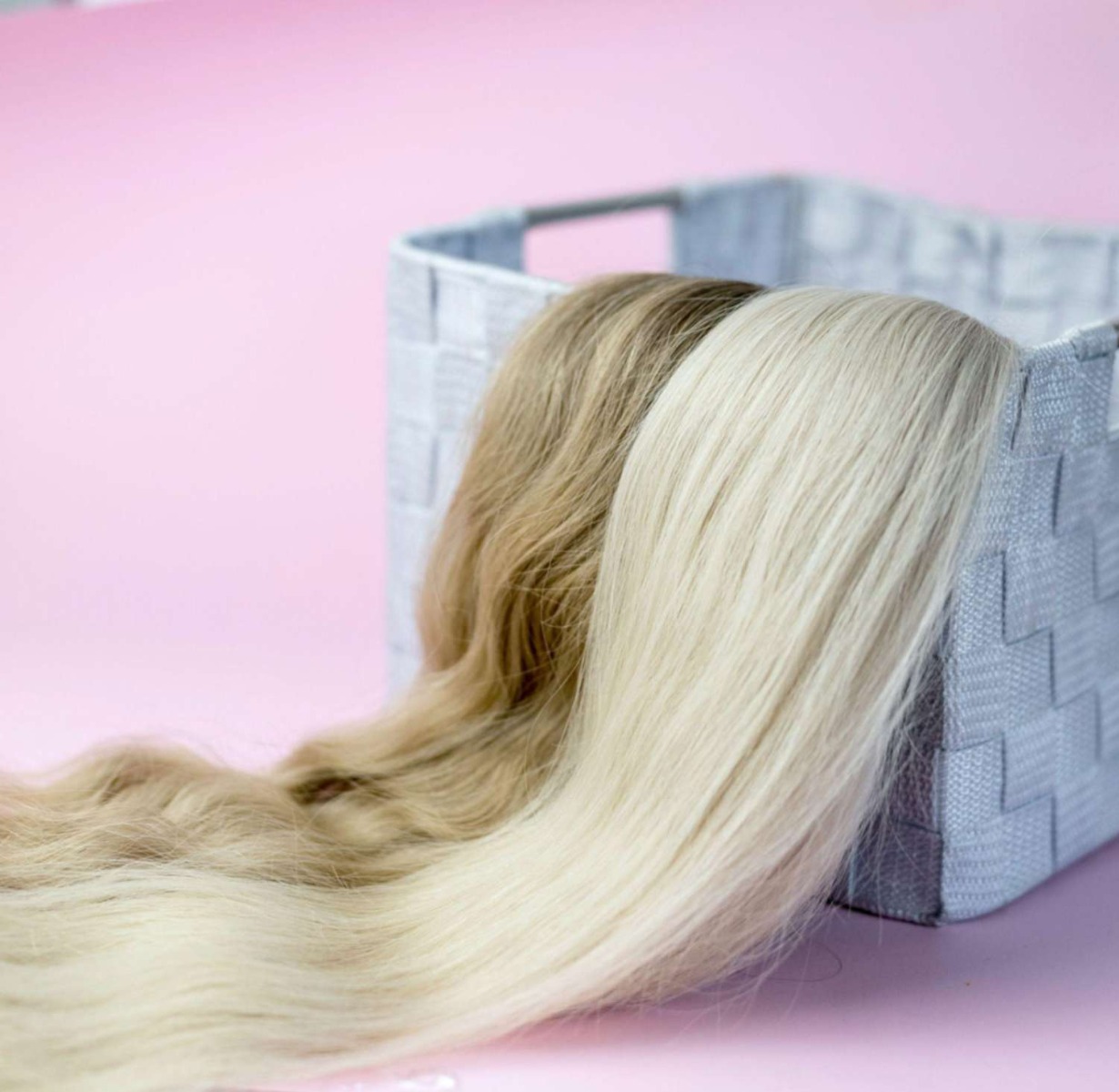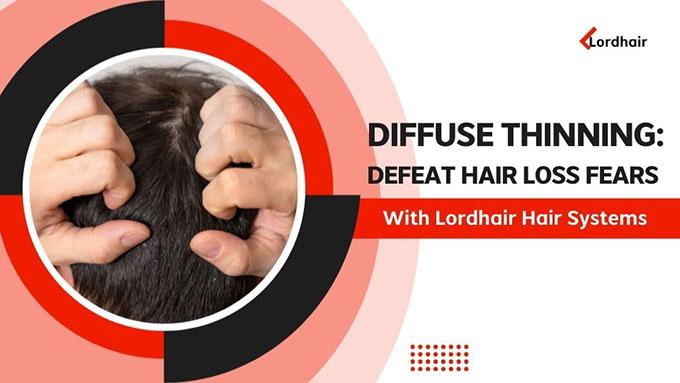Dry, Flaky Scalps and Hair Loss: Is There a Connection?
- Written by Harry Lordhair
- | Published Jan 22, 2024
- |
- 3 min read
 Listen to the full text
Listen to the full text
A dry, itchy, and flaky scalp is an all too common ailment that can be as perplexing as it is aggravating. When coupled with hair loss, this duo of discomfort can impact not just your scalp's health but also your confidence and well-being.
That's why Lordhair - globally trusted for hair systems - decided to shed light on the potential connection between hair loss and flaky scalp, examining causes, effects, and remedies—while also considering the role that hair wigs can play in managing the situation with dignity and ease.

The Root of the Problem: Causes of Hair Loss and a Flaky Scalp
To grasp the relationship between hair loss and flaky scalp, one must first understand the typical causes behind scalp flakiness:
Seborrheic dermatitis
Seborrheic dermatitis is notorious for causing a dry, flaky scalp and hair loss. This condition, often exacerbated by stress, hormonal changes, or yeast that lives on the skin, can be chronic and requires consistent treatment to manage.
Scalp psoriasis
Characterized by thick, scaly patches, scalp psoriasis, can lead to itching and temporary hair thinning. It's an autoimmune condition that causes the skin cells to multiply rapidly, leading to the buildup of bumpy red patches covered with white scales. According to data from the National Psoriasis Foundation, roughly 50% of all individuals with psoriasis experience the onset of scalp psoriasis, a condition that can lead to:
Fungal infections
Fungal infections like ringworm can infiltrate the scalp, leading to itchy scalp flakes and hair loss. It's crucial to treat these infections promptly to prevent temporary hair loss from becoming permanent.
Contact dermatitis
An allergic reaction to hair care products can result in a dry, flaky scalp and hair loss. Identifying and avoiding allergens is key to preventing this condition.
Eczema
Though less common on the scalp, eczema can cause intense itching and flaky skin, and when it affects the scalp; it can be particularly challenging to manage and treat.
Linking a Dry, Flaky Scalp with Hair Loss
There is no denying that an itchy scalp with flakes can be connected to hair loss, but the relationship is often complex:
Role of inflammation
Inflammation from conditions like seborrheic dermatitis can disrupt the hair growth cycle, potentially leading to itchy scalp flakes and hair loss. This inflammation can damage hair follicles and alter the normal hair growth phase, resulting in hair that is weakened or hair that falls out prematurely.
Impact of hair care habits
In the face of an itchy, flaky scalp, sufferers may adopt aggressive hair care tactics such as scratching, which can exacerbate hair loss. Additionally, over-washing or the use of harsh hair products can strip the scalp of its natural oils, leading to further dryness and irritation.
Complications of infection
Persistent scratching can introduce bacteria to the scalp, leading to secondary infections that further compromise hair follicle health and can accelerate hair loss.
Scalp health and hair growth
A flaky scalp is often symptomatic of an unhealthy scalp environment, which can negatively impact hair growth and lead to hair thinning or loss.

Treatment Strategies and the Role of Wigs
Addressing a dry, flaky scalp and subsequent hair loss involves both medical and lifestyle interventions:
Medical treatments
Depending on the cause, treatments may range from medicated shampoos and topicals for dandruff and psoriasis to antifungal medications for fungal infections. In severe cases, a dermatologist may prescribe corticosteroids or other medications to manage inflammation.
Lifestyle adjustments
Gentle hair care routines, stress management techniques, and a diet rich in nutrients supportive of skin and hair health can make a significant difference in managing a flaky scalp and preventing hair loss.
Hair wigs as a solution
For those experiencing hair loss and flaky scalp, hair wigs can be a wonderful solution to maintain a natural and aesthetically pleasing appearance while allowing the scalp to heal. Toupee wigs (also known as men’s human hair wigs, hair systems, hair units, and men’s hairpieces) can provide coverage for thinning areas, reducing the self-consciousness associated with hair loss. Moreover, high-quality wigs made from breathable materials can protect the scalp from environmental aggressors and prevent further irritation.

Hair Loss and a Flaky Scalp: Conclusion
An itchy, flaky scalp accompanied by hair loss can be a distressing condition, but with the right treatment and hair care practices, hair loss and flaky scalp can be managed. As part of a comprehensive approach to scalp health, consider exploring the option of wearing a wig.
Lordhair offers a diverse range of toupee wigs that are not only stylish but designed with comfort in mind, making them an excellent choice for those dealing with scalp sensitivity and hair loss. Whether you are looking for a temporary cosmetic solution or a more long-term alternative, Lordhair wigs provide the quality and variety to help hair loss and flaky scalp. At the same time, you focus on nurturing your scalp back to health.





